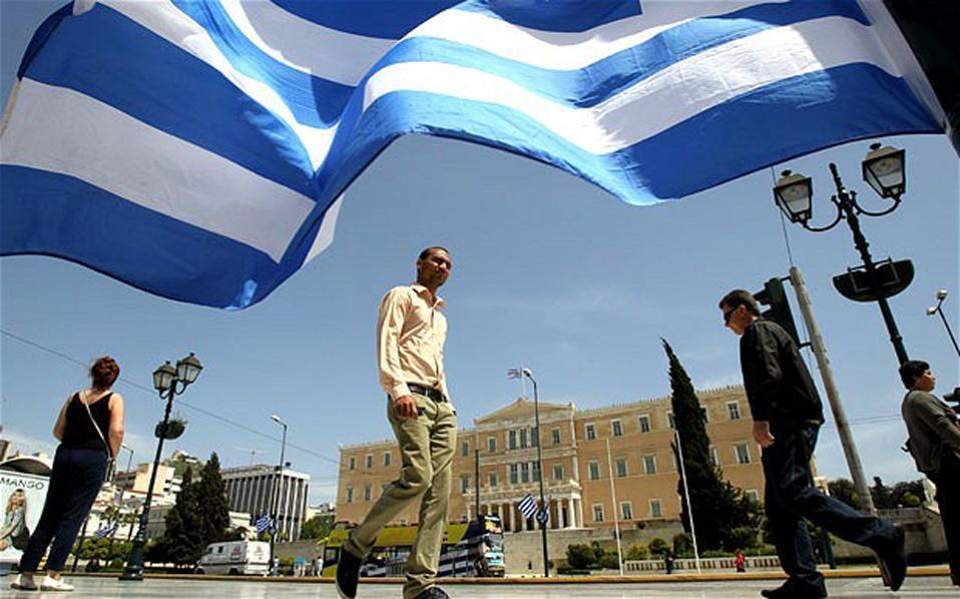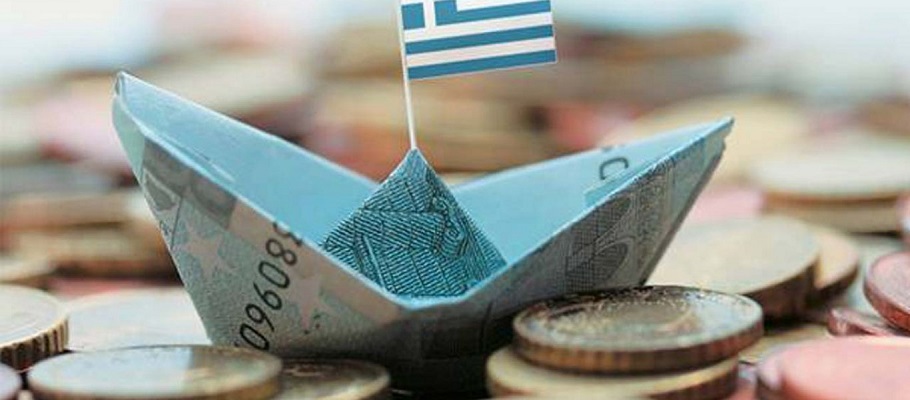Ανάλυση του David Marsh για “την επόμενη πράξη στο ελληνικό δράμα”.
Με ένα απίστευτα σκληρό κείμενο και βαρύτατους χαρακτηρισμούς η οικονομική ιστοσελίδα Market Watch «χτυπάει» ξανά την ελληνική προεδρία της ΕΕ, κάνοντας λόγο για ένα θέατρο που θα παρακολουθήσουν οι Ευρωπαίοι πολίτες από τους Ελληνες.
Σε κείμενο με τίτλο «Η επόμενη πράξη στο ελληνικό δράμα» ο αμερικανικός ιστότοπος αναφέρει ότι δεν θέλει να νιώσουν κι άλλο «πόνο» οι Ευρωπαίοι ψηφοφόροι των πλεονασματικών μελών.
Το δημοσίευμα αναφέρει ότι η Ελλάδα ξεκίνησε την εξάμηνη προεδρία της και θα παρουσιάσει στην Ευρωπαϊκή θεατρική σκηνή τις ικανότητές της στο πολιτικό και οικονομικό θέατρο.

«Τους ηθοποιούς θα αποτελέσει μια αλληλένδετη σειρά από πολιτικούς και οικονομικούς αξιωματούχους τους οποίους συνδέει ένας ιστός αμοιβαίας καχυποψίας και δυσπιστίας» αναφέρει το Market watch και προσθέτει «Ολοι οι συμμετέχοντες στο δράμα παίζουν ρόλους οι οποίοι, για τους ίδιους και τα εθνικά συμφέροντα που εξυπηρετούν, φαίνονται λογικοί και συνεπείς. Ωστόσο, το πρόβλημά είναι ότι αυτά τα συμφέροντα μπορεί να καταλήξουν σε μία πορεία σύγκρουσης».
Ο αρθρογράφος ασκεί κριτική και στον υπουργό Οικονομικών, Γιάννη Στουρνάρα, για τον οποίο αναφέρει ότι η κυβέρνηση μπορεί να συνεχίσει με επιτυχία τις μεταρρυθμίσεις, αλλά αντιτίθεται σε νέα μέτρα χρησιμοποιώντας ως πρόσχημα την λεπτή κοινοβουλευτική πλειοψηφία.
Στο ίδιο μήκος κύματος τονίζεται ότι Σαμαράς και Στουρνάρας εμφανίζονται αισιόδοξοι για την έξοδο της χώρας στις αγορές, αλλά οι Βρυξέλλες αντιμετωπίζουν με σκεπτικισμό αυτή την προοπτική. Για αυτό το λόγο ο επικεφαλής της ΕΚΤ, Μάριο Ντράγκι έσπευσε να δηλώσε προς πάσα κατεύθυνση ότι η κρίση δεν έχει τελειώσει.
Αυτό οφείλεται στην ραγδαία αύξηση των Ευρωσκεπτικιστών που κάνει τους θεσμικούς παράγοντες όπως ο Γέρουν Ντάισελμπλουμ και ο Βόλφγκανγκ Σόιμπλε να μεταθέτουν την όποια συζήτηση μετά τις εκλογές για το Ευρωπαϊκό Κοινοβούλιο.
ΔΙΑΒΑΣΤΕ ΟΛΟΚΛΗΡΟ ΤΟ ΑΡΘΡΟ
As Greece moves into the six-month presidency of the European Union, a display of virtuoso political and economic theatre is about to unfold on the European stage. The actors are an interlocking set of politicians and finance officials from the euro EURUSD +0.20% bloc’s principal creditor and debtor nations, bound together by a web of mutual suspicion and distrust as well potential collective reward.
All the participants in the drama are playing parts that, for them and the national interests they represent, are supremely logical and consistent. The problem is that these interests are not always consistent with each other — and may end up on a collision course.
The largest difficulty is the still sluggish and fragmented state of the euro-bloc recovery, limping gingerly into a post-recession phase. In contrast to the ambitions of international monetary leadership harbored by the architects of economic and monetary union (EMU), Europe is subject to multiple potential threats, ranging from the progressive tightening of U.S. monetary policy to upsets from China and other important emerging-market economies.
Click to Play
Iranian Nuclear Accord Advances
World powers and Iran agreed to begin implementing a pact to curb Tehran’s nuclear program on Jan. 20, setting the stage for six months of diplomacy intended to end Tehran’s atomic weapons threat, officials said. Farnaz Fassihi reports.
In practice, this means that the gap between — on the one hand, falling credit and rising unemployment in the hard-hit periphery countries, and , on the other, the generally buoyant mood on financial markets — remains as acute as ever.
Greece, as the biggest and most exposed debtor, which only two years ago was the centerpiece of the world’s biggest sovereign bankruptcy, has the simplest and starkest objectives: to strike a statesmanlike pose and avoid behavior that might upset the rest of the cast.
Action to reduce Greece’s public debt from the present 175% of gross domsestic productt — compared with a figure of slightly more than 120% which is where the International Monetary Fund wishes it to be by 2020 — has been postponed until the second half of the year.
This represents a further delay in action that was originally promised in 2012 but was shelved on the pretense that everything would be clearer after last September’s German parliamentary elections.
The pretext now is that the full figures for the 2013 Greek budget performance last year will not be available until April 23. The more realistic reason is that European finance ministers would prefer to have no new controversy about aid for Greece until the May European Parliament elections, expected to see big gains for euro-skeptic parties around Europe.
The high-stakes poker game explains why the two most importance finance ministers in the Eurogroup of euro-bloc finance ministry chiefs — the body’s president Jeroen Dijsselbloem of the Nt]erlands and Wolfgang Schaeuble of Germany — are both playing down any question of early Greek debt relief.
Dijsselbloem says, somewhat somewhat optimistically, that the north-south split within the Eurogroup no longer exists. He says that, provided Athens sticks to pre-set austerity conditions, there will be a Greek debt deal in the second half of 2014, after the European elections, but this will not involve any significant write-offs.
Given that Greek debt interest-rate payments make up only 4.5% of GDP, Greece would indeed need more than simple interest-rate cuts on existing borrowing to make inroads into the Athens debt mountain — and therefore Antonis Samaras, the Greek prime minister, will have to wait a while until he can announce any firm debt-cutting measures.
The common denominator linking finance ministers on both sides of the creditor-debtor divide is the desire to avoid further pain for electorates — in the form of harsh borrowing conditions for the indebted states or debt forgiveness by the surplus countries.
Yannis Stournaras, the Greek finance minister, says his country can carry out existing reforms — including better tax collection — but balks at fresh measures, pointing to the slim margin of the parliamentary majority. The fear is that in Greek municipal elections in May coinciding with the European poll, the Samaras government could face a major defeat that would endanger implementation of even the current reform program.
Samaras and Stournaras have spoken about Athens possibly returning to the capital markets in the second half of the year — a claim treated with skepticism in Brussels. The Greeks are looking yearningly at Ireland, which has departed from its European bailout program, and Portugal, which is considering a summer exit, as countries casting off the oppressive yoke of foreign financial rigor.
But there are plenty of voices pointing to hurdles ahead. One of these is Mario Draghi, the European Central Bank president, who last week did his best to discourage views that the crisis is over. Draghi is worried that if governments slacken reform efforts, markets could disrupt bond yields again, and the ECB would be back where it started, under pressure once again from governments clamoring for a safety net for troubled borrowers.
Some prominent Greeks , including burly Deputy Prime Minister Evangelos Venizelos, have warned the Athens government could fall without a significant change in bailout repayments. Never afraid to indulge in saber-rattling with Germany, Venizelos points out that if Greece left the euro, “this could become a threat for the German taxpayer.” Such warnings illustrate the bumpy ride that the euro area still faces this year.






